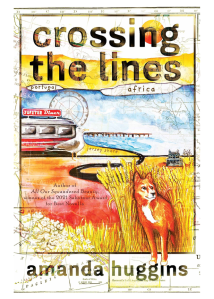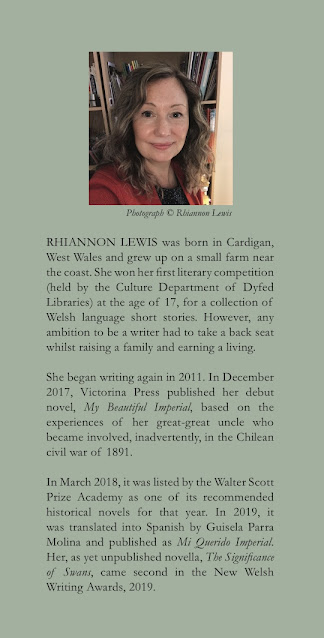I’m delighted to welcome Jennifer Langer to Troutie McFish Tales to talk about her newly released poetry chapbook, The Search, which I had the privilege of
editing for Victorina Press.
THE POET
A long-time writer of poetry for herself, Jennifer’s work has been published in various magazines and she is a member of an inspiring poets’ collective. Jennifer is editor of four anthologies of exiled literature: The
Bend in the Road: Refugees Writing (1997), Crossing the Border: Exiled
Women’s Writing (2002), The Silver Throat of the Moon: Writing in Exile
(2005) and If Salt Has Memory: Contemporary Jewish Exiled Writing (2008) all published by Five Leaves. She is lead editor of Resistance: Voices of Exiled Writers (Palewell, 2020). She is founding director of Exiled Writers Ink which brings together established and developing migrant and refugee writers from
repressive regimes and war-torn situations. Established in 2000, it is
an ever-expanding organisation that provides a space for exiled writers
to be heard, develops and promotes their creative literary expression,
and crucially advocates human rights through literature and literary
activism.
Previously co-editor of Exiled Ink magazine, she has written numerous articles on aspects of the literature of exile and has
presented papers both in the UK and overseas, ranging from Casablanca to
Gothenburg. She also reviews poetry, memoir, fiction and research
focusing on migration, exile, memory and identity. She holds a PhD from
the School of Oriental and African Studies, University of London, in
Cultural Memory and Literature by Exiled Iranian Jewish Women, and an MA
in Cultural Memory from the School of Advanced Study, University of
London. She is currently a SOAS Research Associate. Jennifer is the
daughter of refugees who escaped from Nazi Germany and who met in
England. Her parents were both the sole survivors of their respective
families.
THE COLLECTION
The Search is an exploration of the poet’s complex sense of identity as
the daughter of German Jewish refugees who fled Nazi Germany for
Britain. Crucially, her sensibility of otherness is dialogically engaged
with contemporary refugees and the oppressed. Born of the history of
loss and of refugee roots, the poet dreams of a lost world attempting to
snatch at fragments and striving to create a narrative yet she is also
compelled to confront current tensions arising from the diverse facets
of this identity. Engaged in the attempt to resist negative
representations projected onto herself, she struggles to define herself.
You can order a copy of The Search HERE
THE INTERVIEW
In the very personal opening poem of The Search, a friend asks “where do you really come from?”, a question which heralds the main theme of your collection. As the daughter of German Jewish refugees, your identity is complex, and I see these multi-layered and immersive poems as an attempt to make sense of the past and to discover your true self. Was that a deliberate journey you embarked upon, or did the collection grow in a more organic way?
Born of the history of memory of loss, I dreamed of a lost world and snatched at fragments, striving to create a narrative. I have written numerous articles, particularly for Second Generation Voices, about my insights, experiences and journeys of exploration over the years. As I delve deeper and deeper into my parents’ and relatives’ stories and fates, I feel more and more connected to the once anonymous faces in the photos I first saw as a child. Somehow, I felt the emotional need to articulate my search, pain and mourning in poetry. These are the poems that I wrote over a long period. To conclude, I would say that the collection grew in an organic way.
You don’t limit yourself to examining your own experiences in these poems, you also cast your net much wider, to show us an entire world of displaced and exiled characters. Where did the inspiration come from for these poems – and are some of them based on people and situations you have encountered when travelling?
Some of the travelling has taken the form of a search for roots over many years. My visceral feelings of outsiderness and difference have caused me to empathise with the marginalised of society, particularly asylum seekers and refugees. Frequently there is a dialogical engagement between poems about my background and poems about ‘the other’ so that some of my poetry reveals a concern with outsiders and victims such as the Herero tribe, Calais migrants and the Palestinians, amongst others. As a traveller you are an outsider in a new environment observing with detachment, unless of course, one’s own identity feels intertwined, as it was in Namibia.

You are the Director of Exiled Writers Ink – could you tell us a little bit about that. How important is EWI to you and how has it informed your writing over the years?
As the founding director of an organisation that was never planned but has grown enormously over the years to meet a need, EWI is very important to me. Established in 2000, Exiled Writers Ink recently celebrated its 20th anniversary with an anthology titled Resistance.
The organisation brings together established, emerging and aspiring refugee and migrant writers. It develops and promotes their creative literary expression, encourages cross-cultural dialogue, and advocates human rights through literature and literary activism. Our work comprises creative writing workshops, training, live literature performance events, theatre, mentoring, translation, publications, symposia, poetry competitions and road shows. Our theatre projects have included productions in partnership, performed in the UK and in Poland, Italy and Bosnia.
Having read and listened to the work of exiled writers over many years, as well as having shared experiences with them such as running workshops together, I have been privileged to gain insights into their experiences and sensibility, be it nostalgia, anger, trauma, the state of exile and more, including love. I have also absorbed a richesse of imagery and form such as ghazal and Sufi poetry.
Yet, while I have undoubtedly been affected by their pain and have written about it, I have been wary of speaking in their voice in order not to define them.
What was your biggest challenge when writing this collection?
I had written some early poems in a fairly spontaneous manner with minimal editing. The challenge was to become more disciplined through controlling form, tone, line breaks, metre and so on. In recent years, I have attended a City Lit course, craft of poetry sessions and book launches by established poets and in addition, I am an avid reader of poetry. These have all lead to increased awareness of what is involved in writing interesting, inspiring poetry. A further challenge is that poetry editing never ends!
What did you enjoy most about writing the collection?
The sense of achievement in creating a poem to my satisfaction.

I know you have a busy life. Is it difficult to find the time and space for your writing?
It is difficult although I love exploring ideas and expressing myself through writing in both non-fiction prose and in poetry. Although my intention is always to start the day by working on a poem and shutting myself off from all the demands and pressures in ‘a room of my own’, I somehow invariably succumb to them.
Your publishers, Victorina Press, believe very strongly in the principles of bibliodiversity. What does this mean to you personally and was it a factor in your decision to submit your work to them?
I have to admit that the first time I heard about bibliodiversity was at one of the Victorina Press book launches and although I was unfamiliar with the term, I support all that it stands for. As the founding director of Exiled Writers Ink, whose fundamental aim is to enable the voices of refugee and migrant writers to be heard in society, I realise that bibliodiversity is key in informing our ethos. In fact, I submitted my work to Victorina because of their record in publishing cutting edge work of quality that provides new insights and of course I was thrilled at Consuelo’s positive response to my poetry.
What is next for you as a writer? Another poetry collection or something else?
Yes, I aim to write a poetry collection and currently continue to write poems, some of which I hope to eventually submit to literary magazines. I would also like to convert my doctoral thesis into a book.
Thank you for taking the time to talk to me today. It's lovely to finally see The Search in print and I really hope it all goes well for you!
You can order a copy of The Search HERE




























.png)
.png)
